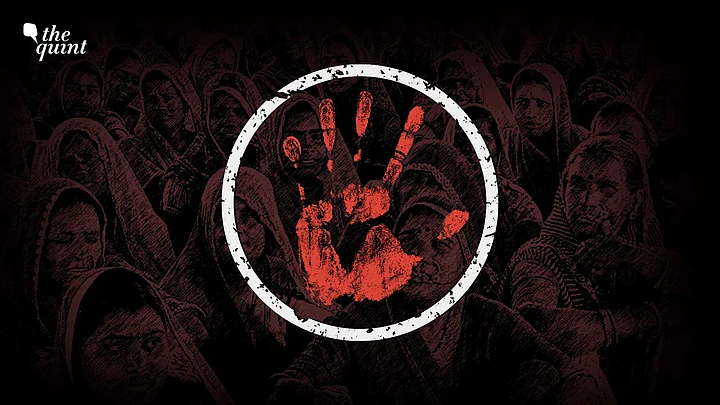Gender-based violence (GBV) or Violence Against Women and Girls (VAWG) is a global pandemic that affects one in three women in their lifetime. Countless women live in fear of this in India's villages. Behind closed doors and societal norms, women face oppression and abuse, their voices silenced by fear and deeply entrenched power dynamics.
Within the domestic sphere, NFHS-5 reports that women aged 15 to 49 years, experience 29.3% of domestic violence in India. But within rural landscapes, the issue of GBV isn't just a statistic – it's a pervasive, lived experience. It is echoed in whispered conversations, wary glances, and the silent suffering etched onto faces.
Ways To Tackle Violence Against Women in Rural India
When addressing GBV, a multidimensional approach is required to bring equal opportunities to rural India since it's not only about merely addressing isolated incidents but also about challenging ingrained beliefs and norms.
Initiatives aimed at addressing GBV play a crucial role in these communities. They act as catalysts for change, attempting to dismantle the prevailing culture of silence. These efforts go beyond legal remedies; they aim to alter the collective consciousness of entire villages.
As we examine these initiatives, we start to uncover not just stories of survival but glimpses of a potential transformation toward a safer, fairer society.
Several Nari Adhikar Kendras (NAK) have been set up in Madhya Pradesh to address these complex issues hindering social, economic, and political empowerment. Functioning as Gender Resource Centres, these Kendras operate within the Cluster Federation offices managed by Cluster Level Federations (CLFs).
The Kendras serve as both virtual and physical spaces, providing a platform for women, especially from marginalised communities to access entitlements, link with skilling and employment opportunities, and participate in entrepreneurship programs, thereby, effectively addressing gender-based violence with a community-first approach.
These also operate within an interconnected network by bringing together many stakeholders involving Self-Help Groups (SHGs) at the village level, Social Action Committees at the village organisation level, and Cluster Federations.
The Instrumental Role of Nari Adhikar Kendras
A Gender Forum, comprising elected representatives, Asha workers, Anganwadi workers, ANMs, police personnel, school principals, and others actively addresses these gender issues. Various departments work with the NAK, including Women and Child Development, Police, Legal Services Authority, Department for SC/ST, Revenue Department, Education, and Health. This convergence creates a conducive environment to voice gender issues.
Several legal changes in India were brought about by women's protests following cases such as the Mathura Rape. The Criminal Law was amended, and the Sexual Harassment Act defined workplace harassment, requiring committees in both formal and informal workplaces. Despite these measures, stigma still hinders reporting, and many cases don't result in consequences, failing to set examples.
Gender sensitisation training was imparted to staff, cadres, SHG leaders, and federations to strengthen the collective agency. The training covers essential concepts such as gender, patriarchy, social constructs, gender division of labour, access to resources, decentralisation, rights and entitlements, violence, and institutional mechanisms.
This capacity-building process empowers individuals and enhances collective agency, enabling women to address issues such as domestic violence, child marriages, child sexual abuse, second marriages, and human trafficking.
A mission for equal opportunities motivates these initiatives to demonstrate what is possible when stakeholders join forces. The success of Nari Adhikar Kendra has led to its expansion to 102 blocks in Madhya Pradesh. The ongoing efforts aim to intensify the engendering of the ecosystem, enabling SHGs and their federations to articulate and engage with gender-based violence.
Transform Rural India continues to provide technical support to strengthen the interface between these community-led initiatives and public system deliveries in Women and Child Development, Police, Legal Services Authority, and more.
We provide technical support to various national programs, including the National Rural Livelihood Mission and the Mahatma Gandhi National Rural Employment Guarantee Programme. By operating at both the state and block levels, we’ve been able to create immersion sites for learning in states like Uttar Pradesh, Madhya Pradesh, Jharkhand, Chhattisgarh, and the Bodoland Territorial Council.
(Seema Bhaskaran is the Lead for Gender at Transform Rural India, a solution designer for regenerative development. This is an opinion piece and the views expressed are the author’s own. The Quint neither endorses nor is responsible for them.)
